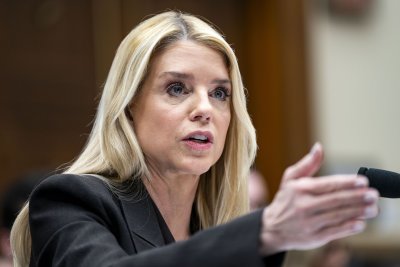This charming village has been dubbed an ‘unspoilt gem’ by visitors and is home to an award-winning bakery that’s been serving up delicious baked goods for over 120 years
Some corners of the world seem to have been shaped with exceptional care and affection – and this pristine Cornwall coastal village is undoubtedly among them.
Nestled along the North Cornwall coastline approximately 10 miles southwest of Newquay, this historically significant and remarkably unspoiled coastal settlement offers breathtaking vistas, vibrant community character, and prize-winning cuisine and beverages.
Concealed within an immaculate section of the Cornish shore, this tiny village represents a gem positioned within both a designated Area of Outstanding Natural Beauty and a World Heritage Site.
This waterside settlement thrives courtesy of its robust local community, which supports an array of independent retailers and enterprises, including one of Britain’s most ancient bakeries still trading from its founding location.
Save on the best holiday cottages in Cornwall

Famous for its rugged coastline, golden beaches, picture-perfect villages and rich maritime heritage, Cornwall is one of the most-visited corner of the UK. Sykes Cottages has a large number of holiday homes to choose from, with prices from £36 per night.
Boasting beautiful, canine-friendly shores, exceptional public houses and dining establishments, and access routes to some of Cornwall’s most dramatic coastal paths and walks, it’s little wonder this village is hailed as a traveller’s paradise, reports Cornwall Live.
Prize-winning bakery with unique pastries
The celebrated St Agnes Bakery has been trading from its original site in St Agnes for more than 120 years – having initially welcomed patrons back in 1905.
Famed for producing the most delectable traditional Cornish recipes daily, St Agnes Bakery stands as one of the village’s finest attractions.
Their renowned Cornish Pasty has secured Gold Standard status, whilst the distinctive ‘Giant Sausage Roll’ was created and gained popularity within the bakery’s modest premises.
Buttery flaky buns, delectable Cornish cakes, and freshly baked loaves also feature amongst St Agnes Bakery’s bestselling items.
St Agnes Bakery has collected numerous prestigious accolades – from World Pastry Awards to National Bakery Awards, each testament to the quality of its exceptional offerings.
The bakery’s owners said: “The joy of baking is deeply rooted in both our own childhood memories and experiences. Since taking over the bakery it has been our aim to bake all our breads, cakes, Cornish pasties and giant sausage rolls using time-honoured methods, tried and tested recipes and only the highest quality of ingredients, just like our own mothers showed us.”
St Agnes Bakery procures the majority of its ingredients locally from Cornwall, with most suppliers and producers based near St Agnes.
A fascinating heritage and plenty of attractions
The prize-winning bakery isn’t the only draw St Agnes has to offer. This charming seaside village, with its winding lanes and delightful independent shops, proves irresistible to holidaymakers.
Its narrow streets brim with Cornish character, establishing St Agnes as a treasured destination for visitors. St Agnes boasts several stunning beaches for visitors to discover, including Trevaunance Cove, Chapel Porth, and Porthtowan – all hugely popular spots for surfing enthusiasts, swimmers, and those simply wanting to soak up the sun.
The surrounding coastal area is steeped in captivating history, particularly its mining heritage, exemplified by sites such as the derelict 19th-century tin mine Wheal Coates.
The village possesses a fascinating past and industrial legacy rooted in tin and copper mining, which dominated Cornwall’s economy during the 18th and 19th centuries. Today, remnants of this mining history, including engine houses and mine shafts, still punctuate the landscape.
Despite ranking amongst Cornwall’s larger coastal villages, St Agnes maintains a charming and unspoilt character. One of its most celebrated landmarks is St Agnes Beacon – an elevated vantage point offering panoramic views of the spectacular countryside and historically serving as a watchtower.
The adjacent St Agnes Head is similarly cherished by both residents and tourists, providing magnificent views across the dramatic Cornish coastline.
This enchanting seaside village has frequently been hailed as an ‘underrated gem’ by those who visit, delivering spectacular coastal scenery featuring dramatic cliffs, sandy beaches, and picture-perfect rural countryside.
It’s also the home of The Peterville Inn, an award-winning establishment which previously claimed the coveted ‘Pub of the Year’ title at the VisitEngland Awards for Excellence in 2024. Chapel Porth Beach stands out as another essential spot in St Agnes, with the Chapel Porth to St Agnes Circular Walk coming highly recommended.
Visits to the St Agnes Museum and Perranporth Airfield are also strongly suggested for those seeking enjoyable pursuits, whilst the St Agnes to Trevellas Porth Circular Walk proves a treat for walking enthusiasts.
Admirers of Winston Graham’s bestselling Poldark novels (and its dashing hero Ross Poldark) will be thrilled to learn that the writer lived just moments from St Agnes and has famously revealed he found inspiration in this picturesque village, calling it ‘Poldark Country’.
Despite its modest proportions, St Agnes brims with delightful attractions, making it an essential destination if you’re after a brilliant experience amidst breathtaking scenery.




